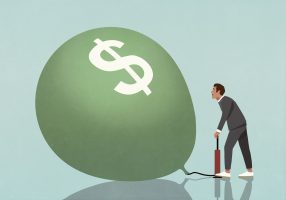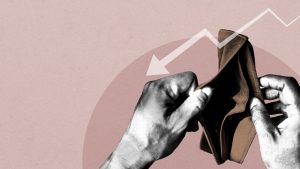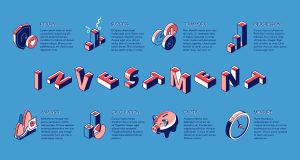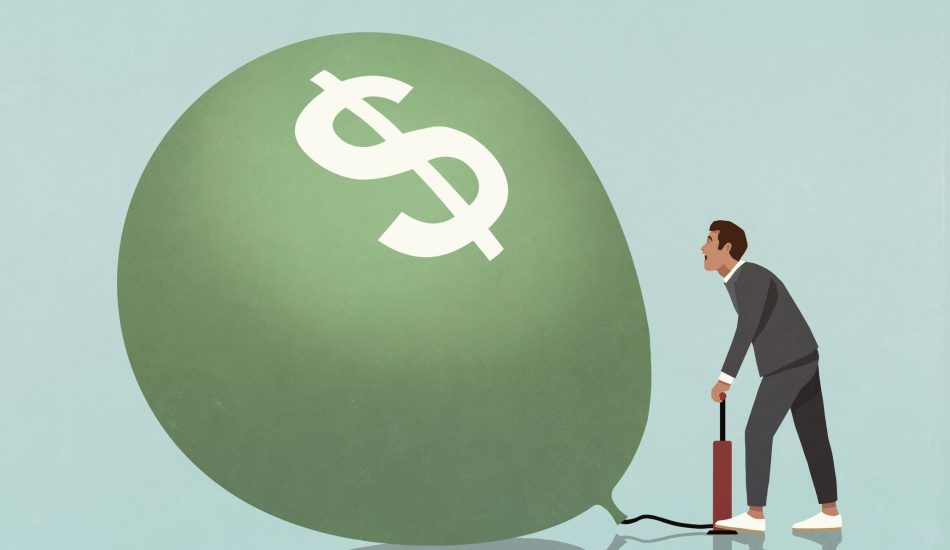One of the biggest problems facing the Nigerian Economy is inflation. The rate of inflation in the country has increased over the years and this has impacted greatly not just on the economic growth of the nation, but also on individuals and their incomes.

What is inflation?
Inflation is defined as “an increase in the quantity of money faster than real national output is expanding.”—Simon Johnson (economist). It is the rate at which the value of currency is falling and consequently, the general level of prices for goods and services increases. This is evident in current spike of cost of needs and has become unbearable for the citizens and the economy at large, putting into account the recent Covid 19 outbreak and increasing levels of insecurity in the country.
Although, according to the National Bureau of Statistics, Nigeria’s inflation rate has dropped to 17.38 percent in July from 17.75 in June 2021; contained in the ‘Consumer Price Index (CPI) Report for July’
Yet, the rate of inflation in the country risen higher than the average in sub-Saharan Africa for more than 20 years now. According to the World Bank data between 2000 and 2020, Nigeria’s inflation between 2000 and 2019 stands at 866.50% compared to the Sub-Saharan African (SSA) rate of 189.10%.

How does inflation affect your income?
Inflation causes purchasing power to decrease significantly, and the cost of living goes up, and this leads to more cash-strapped individuals. If for instance, your salary remains the same but market/goods prices rise due to inflation, your power to purchase your needs automatically will decrease and you won’t be able to afford or buy as much as you once did.
It also affects and depletes the value of your long-term savings; when you save in naira, inflation makes the worth of your cash reduce. For example; if you are saving towards buying a car or a house, for 4 years at an annual interest rate of 2%; but the cost of houses – due to inflation – had risen by 4% per annum before the end of your saving tenor. At the end of your savings tenor, you would ultimately need to add extra money to buy the house.
3 tips to handle inflation period
Naturally, a contractionary monetary policy is one common method of managing inflation. It reduces the supply of money within an economy by lowering the prices of bonds and rising interest rates. Thus, consumption falls, prices fall and inflation slows down.
But this can only be done by the government in such given economy. Now, in the absence of a contractionary monetary policy, how can the average person manage their income during this period?
- Earn and Hold savings in other currencies: To protect your money from inflation and consistent devaluation of the Naira, it is safer to hold them in foreign currencies that are not as prone to inflation as the Naira i.e., USD, Euro, Swiss Francs, etc.
- Investing in Hard Assets: These are tangible assets or resources with fundamental value. They are fall backs against inflation and their real use and scarcity are where their value is derived. Examples of hard assets are; Real estate, Gold, Silver, other precious metals, Oil, Natural gas & other resources, Equipment and machinery, Vehicles / Classic cars, Commodities, Paintings and other Collectibles. With hard asset investments you can just relax and watch investment grow.

- Money market Instruments such as bonds: These are short term fixed-income instruments issued by private and public entities. They are contracts where the issuer of the bond promises to pay regular, fixed income to the bond buyer. Bonds provide a solution by allowing many individual investors to assume the role of the lender and are a safe form of investment. Also investing in Stocks, mutual funds and exchange-traded funds (ETFs) although, these are generally high-risk investments and can produce less than desirable outcomes for unskilled investors.
Managing your income properly during an inflation period in any given economy requires understanding the market and using information to your advantage to stay on top of the constantly changing business front.



